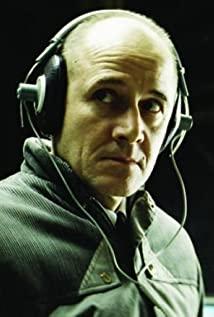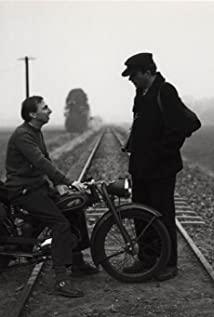The 2006 Oscar Best Foreign Language Film "Eavesdropping Storm" is a very true portrayal of life in East Germany, but most importantly, it deeply studies the human nature and compassion under totalitarianism. Also known as the best German film of the 21st century.
As the director and screenwriter Florian Henkel von Donasmark made his film debut, "Eavesdropping Storm" accurately captured the horror atmosphere in the extreme political claustrophobia of East Germany . Some of the 16 million people are closely monitored by the Ministry of National Security known as "Stasi". It is estimated that Stasi employs 91,000 employees and more than 200,000 informants. Its slogan is "Party's Shield, Party's Sword", and its goal is "Knowing Everything." The ubiquitous secret police is one of the most widely infiltrated spy agencies in history, and is known for using torture and intimidation to suppress, corrupt, and destroy dissidents.
Out of personal experience and preferences, the director is determined to accurately describe his story, so he spent four years researching this topic and even hired a film history consultant. He insisted on shooting the movie on a street that was rarely remodeled after the fall of the Berlin Wall. Visually, the film was shot with gray and brown backgrounds to capture the monotonous scene of the former eastern region and enhance the oppression and intimidation of GDR.
The film has achieved great success both in the critics and at the box office . But what is interesting is that von Donnersmark's political thriller is one of the few films that truly reveals the brutality of the Stasi era after the unification. In fact, many films produced after the reunification of the two Germany described East Germany as touching, expressing nostalgia for the "good old days" of Socialist Democratic Germany.
The film took place five years before the Berlin Wall was demolished: in 1984, agent Weissler was a skilled and highly efficient Stasi officer and a loyal member of the ruling party in East Germany . This cold "monitoring machine" is talented and passionate in interrogation. In the opening clip, Weisler is teaching his students how to tell if the suspect is lying:
"If the prisoner is not guilty, he will become more and more angry because he is treated unfairly. He will growl and even furious. If he is guilty, he will either become more calm and silent or cry bitterly. He knows he will come here. Prove guilt or The best way to be innocent is to keep interrogating."
The footage of the speech is cleverly interspersed with the actual interrogation, and the result of the interrogation is that the suspect confessed his crime. And these criminals often receive "inhuman" treatment, even worse than a police dog.
Then, at the invitation of his predecessor, Oberstnant Anton Grubitz, Weissler participated in the creation of Georg Dremann (played by Sebastian Koch) drama. Deleman is a famous artist, regarded by many as the ultimate model of "loyal citizens" , and one of the few writers in East Germany. Unlike most of his friends, he succeeded in maintaining a delicate balance, being loyal to his artistic principles without allowing his works to be banned.
Deleman is a decent person and is highly respected in the art world because he uses his safe position to help artists with dissidents. So Weisler immediately had an intuition that Deleman could not be as "clean" as he seemed, and he thought it needed to be monitored.
The Minister of Culture Hempf agreed, and the Stasi’s terrifying machine acted: any actions of Dleman were recorded, including the apartment where he and his girlfriend Christina lived . Weisler set up a secret monitoring station in the attic upstairs, where he recorded every voice, joke, quarrel, etc. of the couple. After get off work, Weissler returned to his small apartment, had a simple meal, and then watched a boring show on state-run TV and went to bed alone. All of his was dedicated to the German Democratic Republic, and because of this, his life was empty. In order to curb his loneliness, Weisler ordered the prostitutes to fill the void in his life.
When Captain Weissler listened to Deleman and his girlfriend for hour after hour, he began to fall in love with their rich world full of literature, music, friendship and love, which was related to his own dull and lonely life. Quite different. The more time he spends eavesdropping, the more he cares about them. Weissler learned about the human value of music and poetry through listening to Dremann. He was attracted by their intrinsic kindness.
When Weisler discovered that the real reason for the investigation was only the Minister of Culture in order to extract sexual benefits from the beautiful Christina, and thus let his artist opponent leave, his world collapsed.
What if such corruption and deworming exist at the top leadership of the party, a good man, a communist who is as dedicated as him? Faced with this unpredictable dilemma, the once-stern Stasi agent began to protect Dreyman and the others as much as possible, and omitted a lot of monitoring details in his report.
Even when Deleman was involved in dissident activities for the first time, Weisler would take steps to cover up evidence against him. As the gripping plot draws to a close, the inherent paradox of the story becomes more and more self-evident: the artist and the secret agent seem to be the only two characters who truly believe in the socialist ideals of GDR, but the state apparatus is using them. Their loyalty and belief gain ulterior personal benefits, so the only way for them to express their loyalty is to commit treason.
Although they have never seen each other in the entire movie, these two completely different characters are necessarily related because they both go through a process of moral awakening, forcing them to accept the lies they live in, and finally commit themselves In the struggle against a cruel and authoritarian regime.
When Deleiman sat on the piano and played the "Good Man's Sonata", we learned about a theater director Jezka who was forced to commit suicide because of his dissent. He is one of the many victims of the "decomposition" method commonly used by Stasi . This method is designed to systematically destroy an individual’s professional and social life and spread malicious rumors and fears in one’s social circles. This is a kind of psychological torture, which effectively exhausts the victim's willingness to survive, and is a more effective tool than any torture.
After playing the sonata, Deleman turned to Krista and said: " Those who have listened to this song, I mean those who have really heard it, are they still bad guys? "
This question contains the message of hope and human dignity that the movie wants to convey. This shows that no matter how advanced brainwashing techniques are adopted by totalitarian regimes, they will never be truly successful, because the human soul and human nature cannot be erased or restrained. It also implies that Weisler, who is listening to this piece of music, is also a good person, at least not a bad person anymore.
Weissler's transformation is a typical proof. Even the coldest heart can feel kindness and compassion , and even the most inhumane can respond to sudden whispers and subtle elegant notes. Whether in the oppressed or even the group of people who oppress others, there is always a latent free will to perform small, unpredictable acts of rebellion, and start a quiet resistance until one day it grows into an earth-shaking event. The Great Revolution.
The film tore through the painful wound in Germany during the Stasi era, and also sparked a fierce national debate . Some people think that this film is a valuable and necessary masterpiece. But there are also people who think that not only does the film disrespect the victims, but they also worry that the film is an unrealistic "Romantic" Stasi agent, and that it may promote a new form of despotism, or worst of all. Yes, it may justify the pardon of criminals.
Many critics accuse von Donnersmark of giving Weisler a hint of conscience, thus whitewashing the brutality of Stasi. He thinks that his transformation is very unreliable, because there has never been a record to prove that these agents sympathized with or protected their surveillance targets. However, the film has its own mission, this is not a documentary. Von Donnersmark wrote at the end of his "Director’s Statement": "The most important thing is that "Eavesdropping Storm" is a human drama about the ability of humans to do the right things, no matter if they are on the wrong path. How far have gone."
After more than ten years in theaters, we can safely say that the original intention of "Eavesdropping Storm" is certainly not to set off a wave of sympathy for Stasi around the world . On the contrary, we can say that it exposed the horror of this system to many viewers and added new awareness of this organization. Even some seemingly impractical descriptions, especially about Weisler's salvation. But in the same way, this film must be praised for its sincere expression of human nature and unforgettable artistic value.
In essence, this is a movie about universal humanity, which transcends the age and nationality. After all, this is the essence of art: universality
The article was first published on the public account: the most TOP film reviews
View more about The Lives of Others reviews











